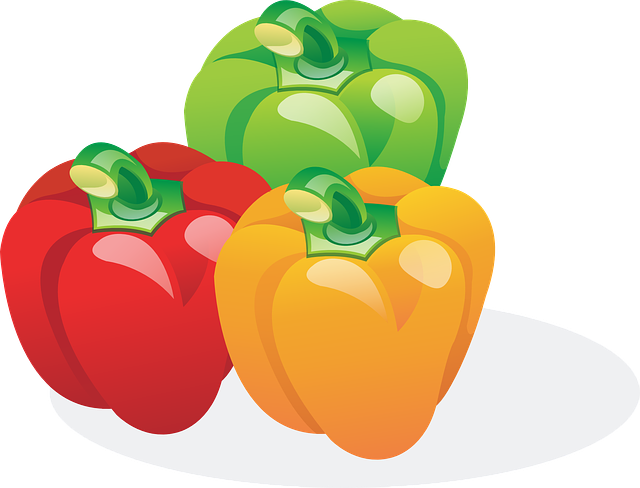Local food delivery and meal preparation services have become vital for individuals with food allergies and intolerances, offering specialized menus and adhering to strict protocols to ensure safe consumption. These services understand the differences between various dietary restrictions, from life-threatening food allergies such as those to nuts or dairy to less severe but still problematic intolerances like lactose or gluten sensitivity. To cater to these needs, they implement allergen-free zones and separate preparation areas, maintain high cleanliness standards, and provide detailed ingredient lists and allergen information. This ensures customers can confidently select meals that align with their dietary requirements without the risk of adverse reactions. By prioritizing clear labeling, transparency, and offering customized meal options, these services enhance customer safety while demonstrating a commitment to dietary inclusivity and personalized care through local food delivery and meal preparation, thus supporting individuals in managing their health concerns effectively.
Navigating the culinary landscape with food allergies or intolerances can be a complex challenge. This article offers a comprehensive guide on how local food delivery and meal preparation services are adapting to cater safely and inclusively to diverse dietary needs. We will explore the critical role these services play in providing options for those with restrictions, share effective meal planning strategies tailored for individuals managing allergies or sensitivities, and delve into best practices for restaurants and meal preparers to ensure safe consumption. Join us as we highlight the importance of local food delivery and meal preparation in creating a world where every dietary concern is met with care and consideration.
- Understanding Food Allergies and Intolerances: A Guide for Safe and Inclusive Local Food Delivery and Meal Preparation
- The Role of Local Food Delivery Services in Catering to Dietary Restrictions
- Effective Meal Planning Strategies for Those with Food Allergies and Intolerances
- How Restaurants and Meal Preparation Services Can Safely Accommodate Food Sensitivities
Understanding Food Allergies and Intolerances: A Guide for Safe and Inclusive Local Food Delivery and Meal Preparation

When catering to individuals with food allergies and intolerances through local food delivery and meal preparation services, understanding the distinctions between these conditions is paramount. Food allergies trigger an immune response in the body, potentially leading to severe or life-threatening reactions if certain foods are consumed. Common allergenic foods include nuts, shellfish, dairy, eggs, soy, and wheat. To accommodate those with food allergies, it’s essential for local food delivery services to implement strict protocols in the kitchen, such as designating allergen-free zones and using separate preparation areas and utensils for allergens versus non-allergens. Cross-contamination must be avoided at all costs.
Food intolerances, while different from allergies, can also pose significant challenges in meal planning and delivery. Unlike allergies, intolerances do not involve the immune system but can still cause adverse health effects when certain foods are ingested. Common intolerances include lactose intolerance and gluten sensitivity. Accommodating these dietary needs requires a thorough understanding of the ingredients and their sources, as well as clear communication between the customer, delivery personnel, and meal preparers. Local food delivery services should offer detailed information on ingredient sourcing, potential cross-contamination risks, and provide options for customized meals that meet specific dietary requirements. By prioritizing accurate labeling, maintaining high standards of cleanliness, and offering personalized menu choices, local food delivery and meal preparation services can ensure a safe and inclusive dining experience for all customers, regardless of their dietary restrictions.
The Role of Local Food Delivery Services in Catering to Dietary Restrictions

As dietary restrictions become increasingly prevalent, local food delivery services have adapted to meet the growing demand for specialized menus that cater to individuals with food allergies and intolerances. These services have taken on a pivotal role in ensuring that consumers with specific dietary needs can safely enjoy meals outside of their home-prepared options. By partnering with restaurants and chefs who are well-versed in allergen management, local food delivery services extend the reach of safe, tailored meal choices. This collaboration allows for a diverse array of dishes to be available to those with dietary restrictions, such as gluten-free, nut-free, or dairy-free diets. Moreover, these services often provide detailed ingredient lists and allergen information for each menu item, giving customers the confidence to order without compromising their health. The commitment of local food delivery services to meal preparation that accommodates dietary restrictions not only enhances accessibility but also promotes a more inclusive dining experience. This is particularly beneficial in areas where dining options may otherwise be limited due to the nature of these dietary needs, thereby empowering individuals with food allergies and intolerances to dine out with greater ease and security.
Effective Meal Planning Strategies for Those with Food Allergies and Intolerances

For individuals navigating food allergies and intolerances, strategic meal planning becomes a cornerstone of maintaining a healthy and safe diet. Effective meal planning not only ensures nutritional needs are met but also accommodates dietary restrictions with ease. One pivotal strategy is to create a diverse and rotation-based menu that incorporates a variety of ingredients. This approach helps avoid monotony while managing potential exposure to allergens. Utilizing local food delivery services can be a game-changer in this process. These services often offer customizable options that align with specific dietary requirements, providing access to fresh, allergen-free meals directly to one’s doorstep. By partnering with these services, individuals can enjoy the convenience of having meals prepared according to their unique needs, minimizing the risk of accidental exposure and the stress associated with meal preparation.
Moreover, those with food allergies and intolerances should consider keeping a detailed inventory of safe foods and any cross-contamination risks. This meticulous record can be instrumental in planning meals that are both delicious and suitable for their condition. Additionally, engaging with local vendors who are well-versed in handling such dietary restrictions can offer peace of mind. They often provide transparent labeling and allergen information, allowing for informed choices. Meal preparation becomes less daunting when supported by these resources. By leveraging local food delivery services and establishing a careful meal planning routine, individuals with food allergies and intolerances can enjoy a balanced and varied diet without compromising their health or safety.
How Restaurants and Meal Preparation Services Can Safely Accommodate Food Sensitivities

Restaurants and meal preparation services play a pivotal role in catering to individuals with food allergies and intolerances. To safely accommodate these sensitivities, establishments must implement stringent protocols that begin with staff training. Employees should be educated on the types of common allergens and how to handle cross-contamination to prevent adverse reactions. This training ensures that every member of the team is aware of the importance of their role in safeguarding customers’ health.
For local food delivery services, the challenge is even more complex as meals must be prepared with care and then transported safely to the customer’s doorstep. Meal prep companies and delivery services can mitigate risks by using dedicated kitchen spaces or specific preparation areas for allergen-free meals. Implementing a robust system for labeling and tracking ingredient sources, as well as providing clear communication channels for customers to specify their needs, is essential. Additionally, these services should maintain transparency with clients about the measures taken, reinforcing trust and confidence in their ability to deliver safe, allergen-conscious meals. By prioritizing customer safety and clearly communicating their accommodating practices, restaurants and meal preparation services not only fulfill a critical need but also distinguish themselves as responsible and caring providers within the local food delivery landscape.
In conclusion, managing food allergies and intolerances through local food delivery and meal preparation services has become increasingly critical in fostering inclusive dining experiences. This article has outlined the essential strategies for understanding these dietary restrictions, highlighting the pivotal role of local services in catering to such needs. By implementing effective meal planning techniques and adopting best practices for safety and accuracy, restaurants and meal providers can ensure that individuals with food sensitivities are well-served. The guidance provided here serves as a cornerstone for establishing a robust system of support within the community, enhancing the quality of life for those with dietary limitations. Embracing these approaches underscores a commitment to inclusivity and safety in local food delivery and meal preparation, making it possible for all to enjoy nutritious and satisfying meals without compromising health.






